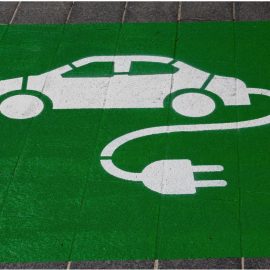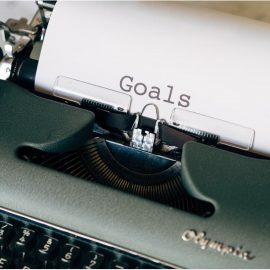

This article is an excerpt from the Shortform book guide to "Flow" by Mihaly Csikszentmihalyi. Shortform has the world's best summaries and analyses of books you should be reading.
Like this article? Sign up for a free trial here .
Do you want to know how to improve your quality of life? Why is knowing the difference between pleasure and enjoyment so important?
According to Csikszentmihalyi, the author of Flow, the two best ways to improve your quality of life are to adjust your environment to align with your goals and to adjust your experience. And in order to adjust your experiences in life, it’s important to keep in mind the difference between pleasure and enjoyment.
Keep reading to learn how to improve your quality of life with advice from Flow.
2 Strategies to Improve Your Quality of Life
If you want to know how to improve your quality of life, here are the two best strategies:
- Adjust your environment to align with your goals. This might involve looking to external benchmarks, such as power or material goods, for success.
- Adjust your experience of your environment to fit your goals.
Most people are conditioned to adjust their environment to align with their goals and achieve success. For example, when you see people with power, status, or wealth, you might assume they’re happy and that you’d be happier if you had those things, too. If you go on to acquire these symbols, you might feel happier initially, but true happiness doesn’t come from what you own or what other people think of you; it comes from how you think about your experiences. In a survey of people in the U.S., the wealthiest participants reported being happy 77 percent of the time, while people with average wealth reported being happy 62 percent of the time. This isn’t a large gap, especially given that the wealthiest participants were selected from a list of the 400 most wealthy people in the U.S. So, to improve your quality of life, focus less on changing your environment (such as increasing your wealth) and more on changing your perception of your experiences.
Example: Learning to feel secure is part of a healthy life. There are different ways to achieve this. One strategy is buying stronger locks for your home, or persuading your city council to increase policing in certain neighborhoods. A second strategy is changing your mindset about the safety in your neighborhood. For example, you might realize that some risks are inevitable and therefore feel less on edge.
The key is to use both strategies together. If you just adjust your environment by buying locks, you haven’t done anything to address your tendency to be fearful of your surroundings, and you’ll likely experience new fears.
Pleasure vs. Enjoyment
To adjust your experience of life, it’s important to keep in mind the difference between pleasure and enjoyment.
You experience pleasure when your biological needs or needs you’ve developed through social conditioning are met. When you experience psychic entropy, or a disruption of your consciousness by something inconsistent with your goals, you may seek pleasure to restore your body’s equilibrium. Some common ways people seek pleasure are through buying things that provide comfort, eating, and having sex. For example, watching television and having a drink to relax from a hectic workday can be pleasurable. Traveling can be pleasurable because it’s a departure from your routine.
But pleasure alone can’t provide happiness. Pleasurable activities like eating restore the body’s sense of balance, but they don’t help you grow as a person or make you more complex. In other words, pleasure helps order your consciousness, but it can’t create new order. Plus, pleasure is often passive: As long as the right parts of your brain are stimulated by an activity, or by drugs, you can feel pleasure without any effort.
In contrast, enjoyment can create new order in consciousness because it requires effort. Enjoyable experiences occur when you satisfy a need or desire, and you:
- Achieve something unexpected or unimagined
- Feel a sense of accomplishment and newness
- Feel like you’ve changed and grown more complex as a person
Experiences don’t have to be enjoyable in the moment, but when you look back on them, you feel accomplished and want to repeat them. Examples include playing a tennis match against an opponent who pushes you to the limits of your skills, or reading a magazine article that makes you think about the world differently.
To reorder your consciousness and feel happier, seek new, challenging goals and focus on them consistently. Young children are wired to do this: They constantly practice new skills, from talking to walking. A child’s concentrated expression when trying to learn something new is a good example of what enjoyment looks like. Yet over time, it’s easy to lose sight of the connection between enjoyment and learning. This could be because we associate learning with going to school rather than something we can do and enjoy on our own time. It can be hard to feel motivated to learn if we don’t associate it with an external reward, such as getting a good grade. This can lead to relying on pleasure for your positive experiences, which doesn’t help you grow as a person and ultimately can’t bring you happiness.
In addition to seeking new challenges, find ways to preserve the enjoyment of things you do. For example, the author knew an Italian antique dealer who once refused to sell a pair of putti, or wooden cherubs, to a customer because she wouldn’t bargain with him. Though he would have made a great deal of money from the price the customer was willing to pay, he preferred the challenge of negotiating, which involved dealing with the buyer’s attempts to trick him or persuade him. He felt that the customer had disrespected him by not attempting to bargain.

———End of Preview———
Like what you just read? Read the rest of the world's best book summary and analysis of Mihaly Csikszentmihalyi's "Flow" at Shortform .
Here's what you'll find in our full Flow summary :
- Why people feel the happiest when they're in the "flow state"
- What activities and personality traits promote flow
- Why you may have a paradoxical relationship with work and leisure






